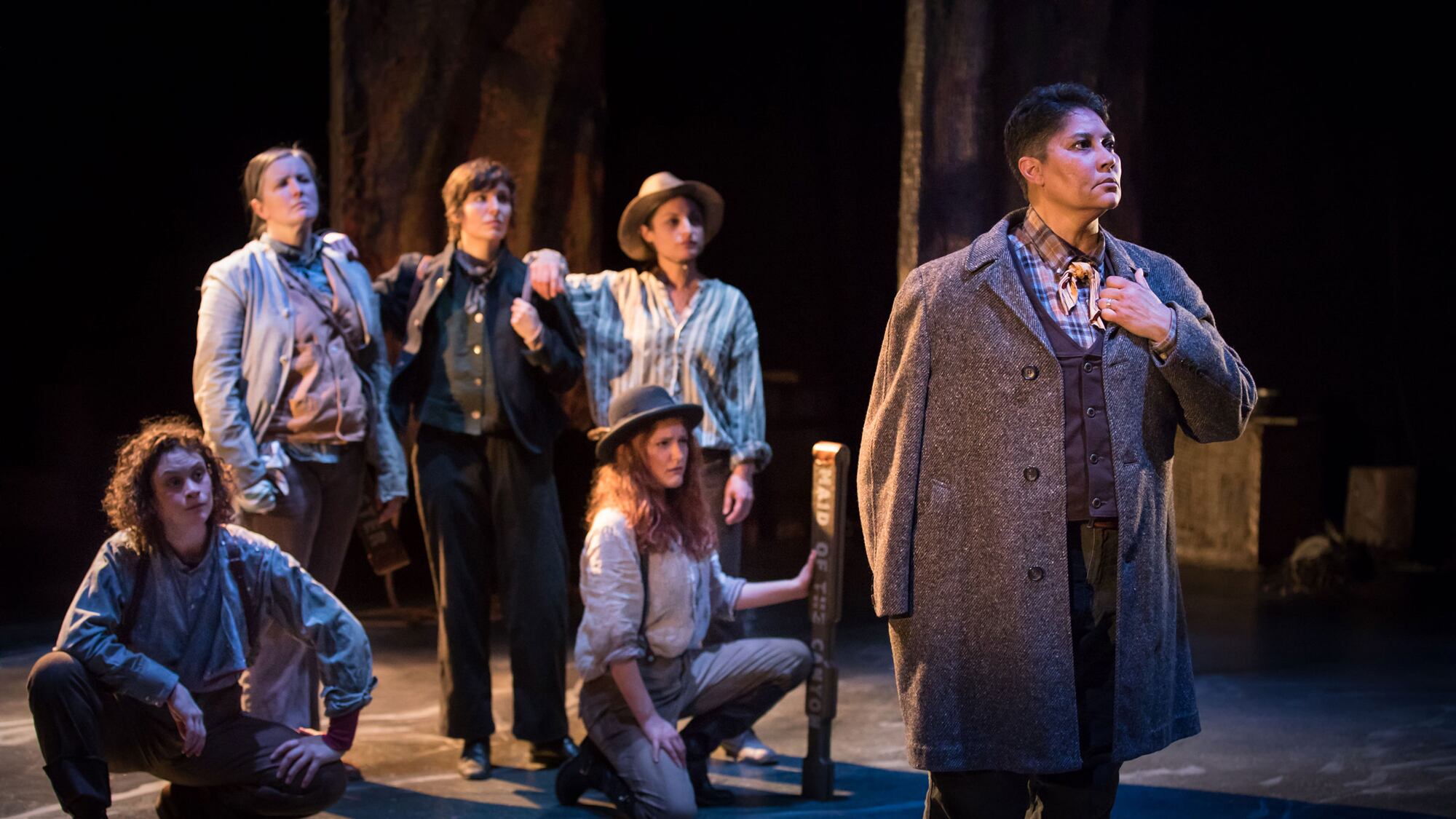On the surface, Men on Boats seems a conventional play. Written by Jaclyn Backhaus, it's a rollicking tale of the 1869 mission to explore the Colorado River, when a group of 10 intrepid adventurers, financed by the U.S. government, struck out to survey one of the last remaining pieces of the American frontier.
But two sentences in the script's casting notes transform the play into something different: "The characters in Men on Boats were historically cisgender white males. The cast should be made up entirely of people who are not." What that something is, though, isn't easy to pin down.
Thoughtfully executed by director Maureen Porter and Third Rail Repertory, the titular men include the leader of the expedition, John Wesley Powell (Jennifer Lanier), on whose journals the play is loosely based, along with Dunn (Amy Driesler), Sumner (Stephanie Gaslin), Old Shady (Amber Whitehall), Bradley (Gwendolyn Duffy), O.G. (Josie Seid) and Seneca (Anya Pearson), Goodman (Kerry Ryan), Hall (Jessica Hillenbrand) and Hawkins (Dre Slaman). The actors manage to come together as a harmonious ensemble while still managing to infuse each of their characters with a unique voice.
In several scenes throughout the play, the men barrel down the rushing rapids in brittle rowboats. The cast mime their rowing in clapboard boats, bobbing up and down with the whitewater, veering toward and away from the dangling burlap canyon walls.
But often, the expedition verges on the banal. One of the goals of the men is naming land masses. It's 1869 and the tail end of the age of exploration. By this time, everything in America has been discovered, and most of it has been discovered many times over by many different peoples.
To name something, one of three criteria must be satisfied: You must be the sole discoverer, you must have accomplished something in direct relation to the landmark, or nobody else objects. At one point in the discussion, Dunn observes that people have already lived there for centuries and the formations have probably already been named. But those people aren't around to object, so it's little more than a passing thought.
What the men don't discuss, however, is gender and identity. The dialogue contains no sly comments about the casting note to push the audience in one direction, and there are no a winking nods of dramatic irony. These men are a stoic lot. They have moments of eloquence when discussing how and what to name monuments, or divvying up chores, or shouting directions for navigating rivers. But it's never even crossed their minds there might be more than two things you could possibly say about gender.
Men on Boats succeeds more as an intriguing concept than a conventional piece of drama. There are moments of conflict, such as when one party member announces an early departure from the expedition or another is accused of stealing tobacco. There are perilous moments on the river, too. But for the most part, when tension is introduced, it is quickly resolved and leaves no lasting impact on the characters or narrative.
However, that's exemplary of what Men on Boats wants from its audience: The climax of the play occurs during discussions held after the curtain closes.
SEE IT: Men on Boats is at Imago Theatre, 17 SE 8th Ave., thirdrailrep.org. 7:30 pm Thursday-Saturday, 2 pm Sunday, through March 24. $45.
